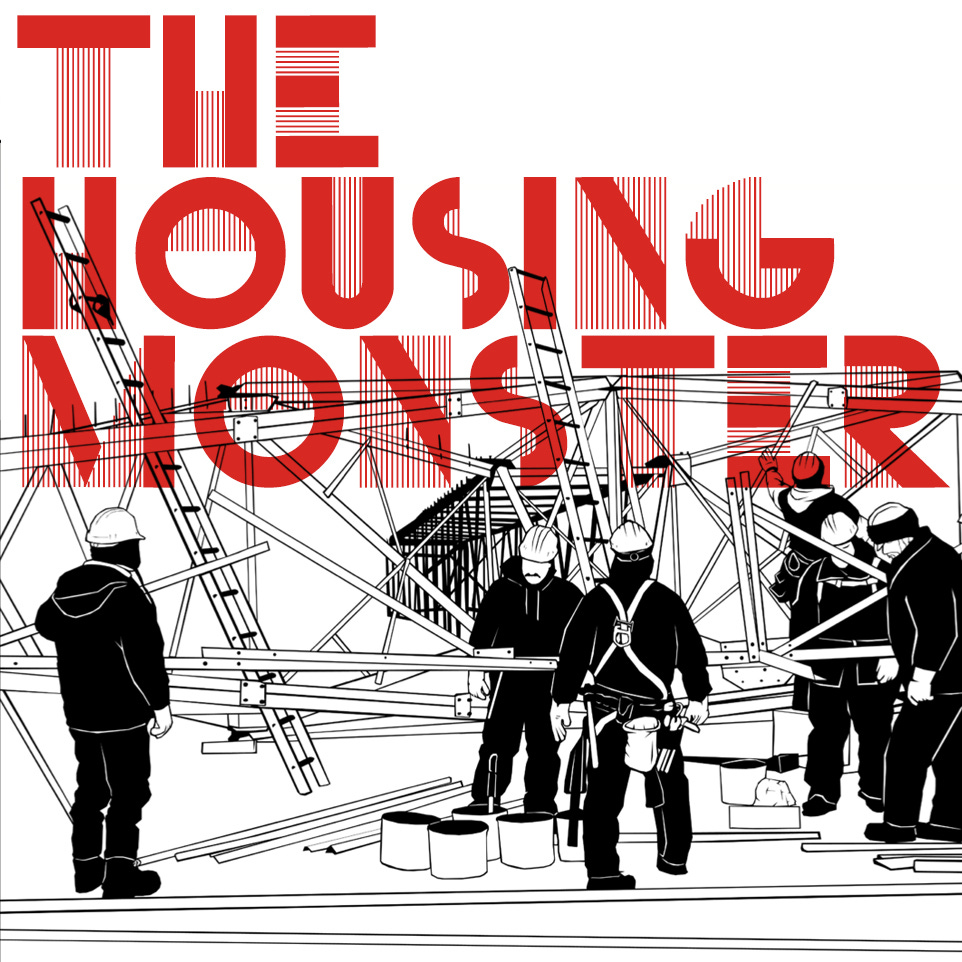The Housing Monster
The audiobook is now available to stream and download.
We’re living in the middle of a housing crisis.
Like standing still in a riot, it’s often hard to take stock of what’s happening until after the smoke and teargas clear. That’s why history, theory and storytelling are so important. They help us make sense of events that otherwise appear discrete or unrelated. And while you can’t read your way out of a crisis, understanding its causes and its character can you help you decide how to act.
The current explosion of housing costs, as well as the overall cost of living, can feel like a personal failing. The logic of capitalism is the primacy of the individual: everyone competes on the market of human endeavour and endurance, and—so the story goes—only the strong survive. When despite working your ass off you can’t even secure stable and long-term shelter, that most basic human need, it stands to reason that you’re just not strong enough. Nothing quite equals the stress of uncertainty around where you’ll retreat to at the end of a hard day—to eat, to sleep, to feel safe. Who are you if you have nowhere to go? It reinforces the sense that you’re merely an individual, that you’re alone.
The bitterest irony of this logic is that capitalism is, if nothing else, the socialisation of the forces of production. Every time you eat, say, a banana, you’re at the end-stage of a process that includes countless previous stages and countless workers like yourself: workers clearing fields; workers planting banana trees; workers harvesting and packing the fruit; teamsters and sailors and longshoremen shipping the fruit across the planet; supermarket workers selling you the banana; workers feeding and clothing all these other workers, etc. There’s not a single physical object in your life that wasn’t the product of people you’ve never met working together to create the world we live in. You have more in common with these people than you do with your own native-born capitalists, because you also take part in creating the world through your labour. Still, somehow you’re alone and nothing belongs to you but the bare necessities to get up and go back to work—and sometimes not even that.
This book takes a shot at explaining why.
The Housing Monster was written by an anonymous construction worker and posted on prole.info, where you can download the ebook for free (and find a link to print copies as well). Spaghetti For Brains helped record the audiobook version, which is available for free at the Internet Archive.
Here’s the publisher’s description of the book:
The Housing Monster is a scathing essay that takes one seemingly simple, everyday thing—a house—and looks at the social relations that surround it. Moving from intensely personal thoughts and interactions to large-scale political and economic forces, it reads alternately like a worker’s diary, a short story, a psychology of everyday life, a historical account, an introduction to Marxist critique of political economy, and an angry flyer someone would pass you on the street.
Starting with the construction site and the physical building of houses, the book slowly builds and links more and more issues together: from gentrification and city politics to gender roles and identity politics, from subcontracting and speculation to union contracts and negotiation, from individual belief, suffering, and resistance to structural division, necessity, and instability. What starts as a look at housing broadens into a critique of capitalism as a whole.
In the coming weeks, you’ll also be able to listen to the audiobook on Spaghetti For Brains podcast, broken into four parts. Feel free to share it or to use it for your own purposes.
Until then.

